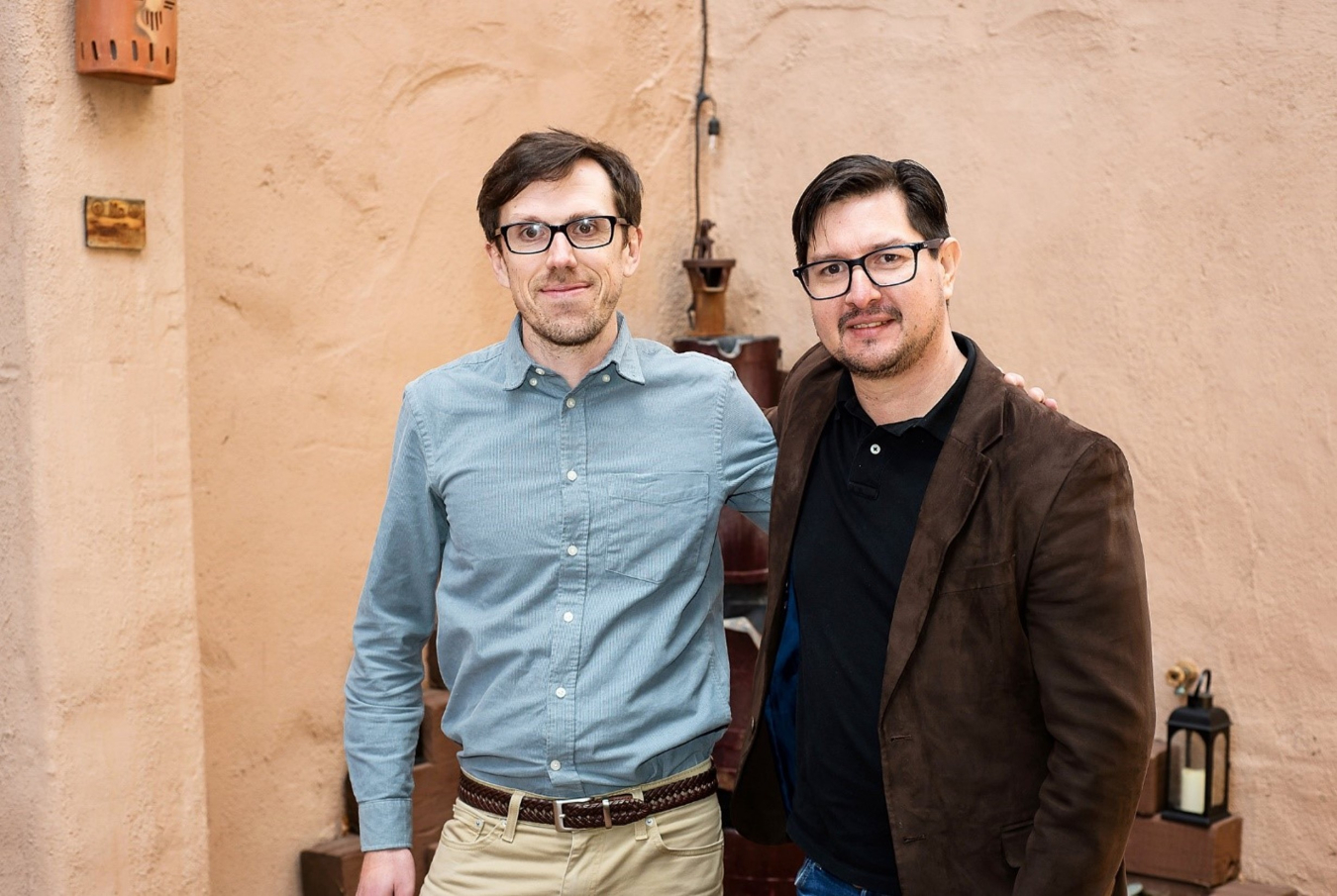The CUBES project, led by Sandia National Laboratories researchers, is working to transform organic waste into biofuels. Their groundbreaking work could help reduce emissions and contribute to a carbon-neutral future. Learn more about this Energy I-Corps alumnus team
Office of Technology Transitions
November 13, 2024Energy I-Corps equips teams from U.S. Department of Energy (DOE) National Labs with the tools to commercialize their technologies and bring them to market. The program pairs researchers with industry mentors and provides two months of intensive commercialization training. The Carbon Upcycled Bioproducts for Environmental Sustainability (CUBES) project, led by Carlos Quiroz-Arita and Nicholas Myllenbeck from Sandia National Laboratories, participated in Energy I-Corps Cohort 16. The team was funded by the DOE Bioenergy Technologies Office (BETO). Through Energy I-Corps training and perspectives, the team was able to shift their research focus to one with promising market viability. Now, the team is advancing biofuel technologies that could help meet growing global demand for sustainable fuels and reduce greenhouse gas emissions.
Organic materials like plants, agricultural waste, and even animal manure can be converted into usable biofuels like ethanol, biodiesel, and biogas that can serve as alternatives to traditional fossil fuels. Because they come from renewable resources and can reduce greenhouse gas emissions, biofuels are considered more environmentally friendly.
Global demand for biofuels is projected to increase by nearly 30% by 2028. However, many biofuel technologies are limited by obstacles like high production costs and low availability of feedstocks—the raw materials that can be used to produce energy. In addition, many biofuel technologies have not yet achieved net-zero or net-negative carbon emissions.
To bridge these gaps, Quiroz-Arita and Myllenbeck joined forces with industry mentor Paul Bryan to create the CUBES project, an effort to identify feedstocks and technologies that can not only perform efficiently on an industrial scale, but also provide significant environmental benefits.
“We wanted to show that biofuel technologies can be economically viable and environmentally sustainable,” said Quiroz-Arita, who specializes in wastewater engineering and biorefineries and has industry experience in the conversion of biomass to biofuels and bioproducts through anaerobic reactors.

As part of the Energy I-Corps program, the team interviewed 82 refineries, consultants, non-profit organizations, and farmers to gain insights into the market needs and pain points related to biofuels.
“Over 90% of our stakeholders told us that cellulosic biofuels—fuels produced from grass, wood, or crop leftovers—are not yet economically viable,” said Quiroz-Arita. “However, they also told us that cow manure is a reliable and low-cost feedstock, and some stakeholders call biogas a new gold rush.”
Based on this feedback, the team shifted their focus to anaerobic digestion, a process that uses microbes to break down manure, turning it into biogas. This biogas can then be used as renewable natural gas to generate electricity and heat, or as sustainable aviation fuel (SAF).
The team completed the Energy I-Corps program in May 2023 and thanks to funding from BETO, the U.S. Department of Defense’s Defense Advanced Research Projects Agency, and internal Sandia investments, the team continues to work towards enabling economically viable and environmentally beneficial biofuels.
“The Energy I-Corps experience was pivotal in shaping the team’s approach to technology commercialization,” said Quiroz-Arita. “Every scientist should go through this program so that, before they invest research and development efforts in a new technology, they first identify their stakeholders’ needs.”
Quiroz-Arita and the CUBES team are reengineering anaerobic digesters with technology from Sandia that will help achieve BETO’s goals of producing 3 billion gallons of domestic SAF by 2030 and 35 billion gallons by 2050. In addition, the team’s work can help achieve DOE’s goal to displace more than 70% of greenhouse emissions.
The CUBES team continues their biofuels research and development, preparing new proposals and exploring further collaborations to bring their technologies to market. By staying attuned to industry needs and focusing on sustainable solutions, the CUBES project is well-positioned to contribute to the transition to a carbon-neutral economy.

